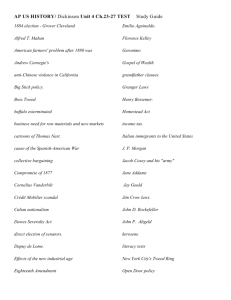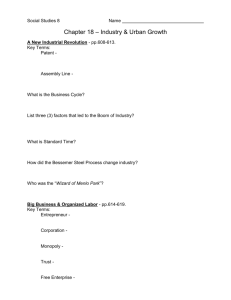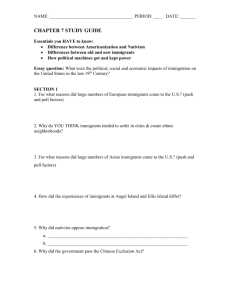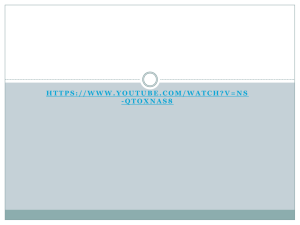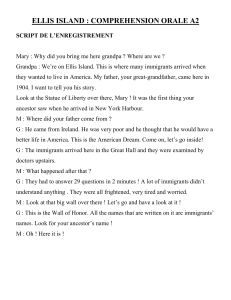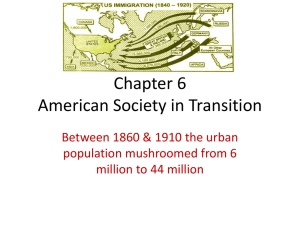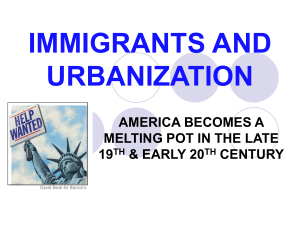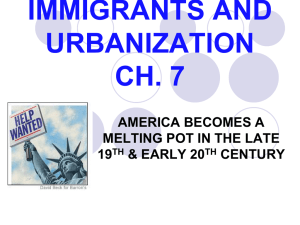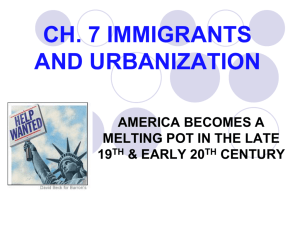Completed Study Guide Immigration/Urbanization
advertisement
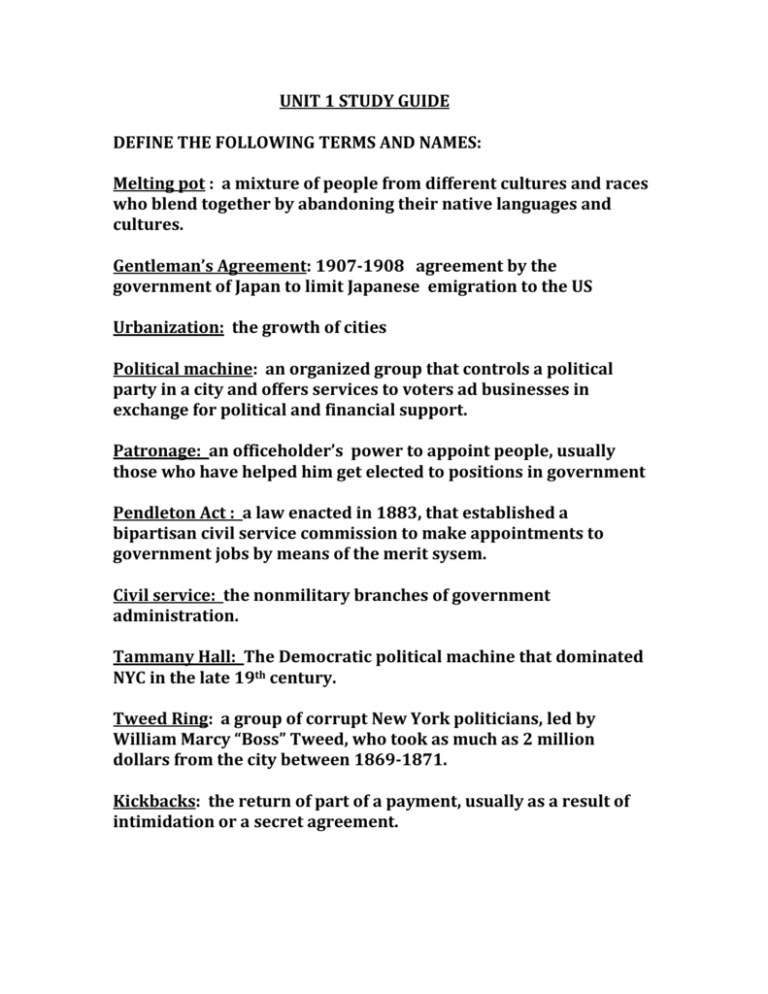
UNIT 1 STUDY GUIDE DEFINE THE FOLLOWING TERMS AND NAMES: Melting pot : a mixture of people from different cultures and races who blend together by abandoning their native languages and cultures. Gentleman’s Agreement: 1907-1908 agreement by the government of Japan to limit Japanese emigration to the US Urbanization: the growth of cities Political machine: an organized group that controls a political party in a city and offers services to voters ad businesses in exchange for political and financial support. Patronage: an officeholder’s power to appoint people, usually those who have helped him get elected to positions in government Pendleton Act : a law enacted in 1883, that established a bipartisan civil service commission to make appointments to government jobs by means of the merit sysem. Civil service: the nonmilitary branches of government administration. Tammany Hall: The Democratic political machine that dominated NYC in the late 19th century. Tweed Ring: a group of corrupt New York politicians, led by William Marcy “Boss” Tweed, who took as much as 2 million dollars from the city between 1869-1871. Kickbacks: the return of part of a payment, usually as a result of intimidation or a secret agreement. Graft: the illegal use of political influence for personal gain Dumbbell tenement: a long narrow, five or six story building shaped like a barbell. Settlement house: a community center providing assistance to residents, particularly immigrants, in a slum neighborhood. Culture shock: the confusion and anxiety that result from living in an unfamiliar culture. Chinese Exclusion Act: a law enacted in 1882, that prohibited all Chinese except students, teachers, merchants, tourists, and government officials form entering the US. Angel Island: Asians, primarily Chinese arriving on the west coast gained admission at Angel Island in San Francisco Bay. Ellis Island: Inspection center for immigrants entering the US on the east coast. New York Harbor Thomas Nast: a political cartoonist who ridiculed Boss Tweed. Boss Tweed: one of the earliest and most powerful bosses. Where did the new immigrants come from? Southern and Eastern Europe- Italy, Austria-Hungary, and Russia Where did the old immigrants come from? Western and Northern Europe- Great Britain, Ireland, and Germany. What difficulties did immigrants face in gaining admission to the United States? Physical examinations, report to government inspectors to see if they met the legal requirements to enter the US, Pass literacy tests, prove they could work, and show they had at least $25. How did immigrants deal with the challenges they faced in America? Lived in ethnic communities, pooled money to build neighborhood churches and synagogues. They formed social clubs to meet and share experiences, offer mutual support, and enjoy each others company. What housing problems did urban working class families face? Overcrowding, live on outskirts of city and had to commute to work. Poor transportation. Boardinghouses sharing kitchen and dining room facilities. Unsanitary conditions. How did conditions in cities affect people’s health? Problems supplying fresh water, Sanitation, Fires, Crime. Why did immigrants support political machines? They received sympathetic support for political machines, helped immigrants become naturalized, find a place to live , and get a job. In return the immigrants provided the political bosses with votes. How did the spoils system contribute to government incompetence and fraud? Government employees were not qualified for the positions they filled. Interfered with the daily functioning of government. What were the positive and negative effects of the Pendleton Act? Positive- increasing numbers of federal jobs were held by qualified people, and public administration became more honest and efficient. Negative- because officials could no longer could pressure government employees for campaign contributions, politicians had to find other employees for campaign contributions. The obvious source was wealthy business owners, the alliance between government and big business became stronger than ever. ****Compare the current system of politics with the political machines described in this unit. Which system is more effective? Explain your opinion.

